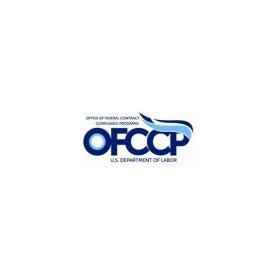In the wake of the coronavirus (COVID-19) pandemic, many federal contractors are questioning to what extent the Department of Labor (DOL) Office of Federal Contract Compliance Programs (OFCCP) will continue to operate and whether recently passed legislation includes any relief for federal contractors. While the OFCCP has made it clear that it remains “virtually” operational, it will not be “business as usual.”
OFCCP Audit Expectations and Automatic Extensions
The National Industry Liaison Group (NILG) and OFCCP have been in communication about OFCCP’s operations during the COVID-19 pandemic. According to a recent NILG email, the OFCCP is continuing operations “to the extent feasible” and has instituted the following protocols in the interest of contractors:
-
Grant an automatic 30-day extension for submission of Affirmative Action Plans (AAPs) after receipt of Scheduling Letter
-
Grant an automatic additional 30-day extension to contractors who submit their written AAP narrative within 60 days of receipt of Scheduling Letter (i.e. provide another 30 days for submission of all data reports and analyses)
-
Grant an automatic extension of 14 days, and more commonly of 30 days, for contractor response to information requests, with opportunity for further extensions as needed
-
Conduct Section 503 focused review onsite via video or phone conference only until contractors begin resuming normal operations
If a contractor is concerned about receiving a Scheduling Letter during the pandemic, it should provide the applicable Regional Director with the email address for the responsible contractor representative, with a copy to the Deputy Director via email. The OFCCP has assured NILG “that contractors providing this information will receive the Scheduling Letters via email in addition to the mailed copy.”
The OFCCP has also indicated a willingness to grant additional extensions to contractors affected by the COVID-19 pandemic. If a contractor “believe[s] the OFCCP is not taking the pandemic emergency into sufficient account, either in general or in a relation to a specific audit,” they can contact the OFCCP Ombudsman via email or by phone at (202) 693-1174.
National Interest Exemption for Certain COVID-19 Relief Contracts
The OFCCP issued a National Interest Exemption (NIE) memorandum, which exempts companies new to federal contracting from certain OFCCP requirements. This exemption applies only to supply and service and construction contracts entered into from March 17, 2020 to June 17, 2020, and only to contracts specifically to provide COVID-19-related relief, the scope of which continues to change. Significantly, contractors that hold existing federal contracts must still comply with OFCCP laws, even if they obtain additional contracts related to COVID-19 relief.
For the contractors that qualify for the exemption, their contracts will not include obligations under Executive Order 11246, Section 503 of the Rehabilitation Act, and Section 4212 of the Vietnam Era Veterans’ Readjustment Assistance Act (VEVRAA) and their implementing regulations. These contractual exceptions have the effect of exempting qualifying contractors from preparing and maintaining affirmative action programs posting requirements, solicitation/advertisement requirements and mandatory job listing requirements, among other obligations.
Qualifying contractors are not exempt from all OFCCP obligations, such as the nondiscrimination and nonretaliation obligations under OFCCP’s laws. Accordingly, qualifying contractors must not discriminate or retaliate against any employee or applicant for employment because of race, color, religion, sex, sexual orientation, gender identity, national origin, disability or protected veteran status. To this end, OFCCP will continue to accept and investigate complaints of discrimination and/or retaliation.
To determine whether the NIE applies, qualifying contractors should review their contracts for the alternate contract clauses, which are set forth in the NIE memorandum. New and existing federal contractors should also consult OFCCP’s COVID-19 FAQs for more information on the NIE. Additionally, given the interplay between federal disaster funds and state actions, contractors should also be aware that COVID-19 contracts executed with state governmental entities may implicate additional federal and state socioeconomic laws and regulations. Accordingly, commercial contractors that have not previously provided supplies or services to the government should carefully review relevant obligations and determine whether revisions to existing standard operating procedures and codes of ethics and business conduct are required to achieve compliance with the NIE.
Potential Paid Leave Reimbursement Under CARES
Under Section 3610 of the Coronavirus Aid, Relief, and Economic Security Act (CARES), government contracting agencies may choose to modify contracts to provide reimbursement for the paid leave (including paid sick leave) a federal contractor provides to its employees for the purpose of keeping the contractor’s workforce “in a ready state.” However, the scope of paid leave reimbursement is limited by several factors:
-
The reimbursement only applies to a contractor whose employees cannot perform work due to facility closures and cannot telework because their job duties cannot be performed remotely.
-
The reimbursement amount may not exceed an average of 40 hours per week per affected employee “at the minimum applicable contract billing rates.”
-
The maximum reimbursement must be reduced by the amount of any credits the contractor receives through CARES or the Families First Coronavirus Response Act.
-
The reimbursement is only available for paid leaves granted through September 30, 2020.
Several agencies have issued guidance to help contractors better understand Section 3610. Accordingly, qualifying contractors should consider contacting their contracting officers to express interest in receiving the reimbursement and consult guidance issued by the U.S. Department of Defense (DOD), Office of the Director of National Intelligence (ODNI), and National Aeronautics and Space Administration (NASA), among others, as applicable.
EEO-1 Portal Still Not Open for 2019 EEO-1 Report
The Equal Employment Opportunity Commission (EEOC) requires private employers with more than 100 employees and federal contractors with 50 or more employees and having a contract of $50,000 or more to report workforce data about employees’ gender, race and ethnicity. Although the Employer Information Report (EEO-1) survey is typically due on March 31, the EEO-1 Portal has yet to open to accept 2019 EEO-1 surveys and there is no current sign of when it will open.
Not only is the country undergoing a pandemic, but the EEOC is still seeking approval from the Office of Management and Budget (OMB) to collect the EEO-1 survey for demographic data (EEO-1 Component 1) for 2019, 2020 and 2021. While the EEOC has requested renewal of the EEO-1 Component 1, it does not seek renewal for EEO-1 pay data (EEO-1 Component 2).
The EEOC promises to announce the opening of the EEO-1 Portal and the new deadline for the EEO-1 survey on its website, in addition to mailing notification letters.







 i
i

